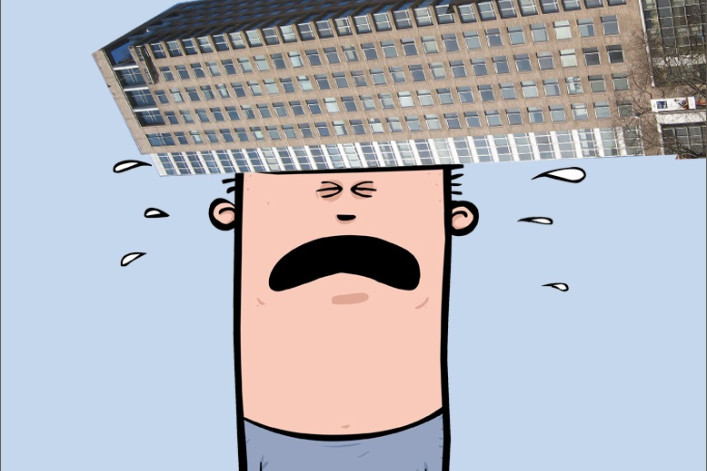Um, why do I need a handicap bathroom for my third-floor walk-up?

The Situation:
This is a true story: When we redid the bathroom on the top floor of my client’s attached townhouse--up two narrow, winding flights of stairs--we were required to widen the doorway for wheelchair accessibility.
This was a space that no disabled person could ever access in the first place. In fact, during construction, my client had a skiing accident that put her in a wheelchair. She was grounded to her first-floor powder room for weeks.
Now, understanding the arcane federal and local laws surrounding the Americans with Disabilities Act (ADA), a forward-thinking law passed in 1990, is beyond the grasp of many professionals, never mind the average NYC apartment dweller...so much so that a massive industry has grown up around interpreting and anticipating how these laws will affect renovations.
So, what do you have to know, as a homeowner, before you begin yours?
Here's the Deal:
• If you live in a multiple-family dwelling (i.e. an apartment building), you must follow these laws.
If you own a single-family home, you are exempted from these regulations—however, if you intend to “age in place,” following the guidelines will save the cost of making changes later.
• It does not matter if a handicapped person does not currently reside in your home. The law is intended to increase accessible housing stock by upgrading existing structures as they are renovated.
• Your architect or designer will guide you as to specific regulations. (I will cover some of those in future columns.) You will also hire an expeditor, who is a specialist in such law (and in the kafka-esque ways of the DOB), to review your plans. The expeditor should catch anything the DOB inspectors might question, and may suggest revisions to your plans to increase the chances of gaining a permit.
• In Manhattan's housing stock, there are often situations which make following ADA laws difficult or impossible. Our apartments are carved around immovable columns, fire walls, and plumbing risers. If you can't follow the regulations to a T, your expeditor will argue your case with the DOB. Usually, as long as you have made every effort to improve the accessibility of the space, your design will pass.
• ADA regulations benefit everyone by making public and private spaces, including hallways, kitchens and bathrooms, safer and better designed. As the Boomer generation ages, we will come to appreciate ADA even more. Without this law, my client might not have had the toilet that was required to be built on her ground floor.






















